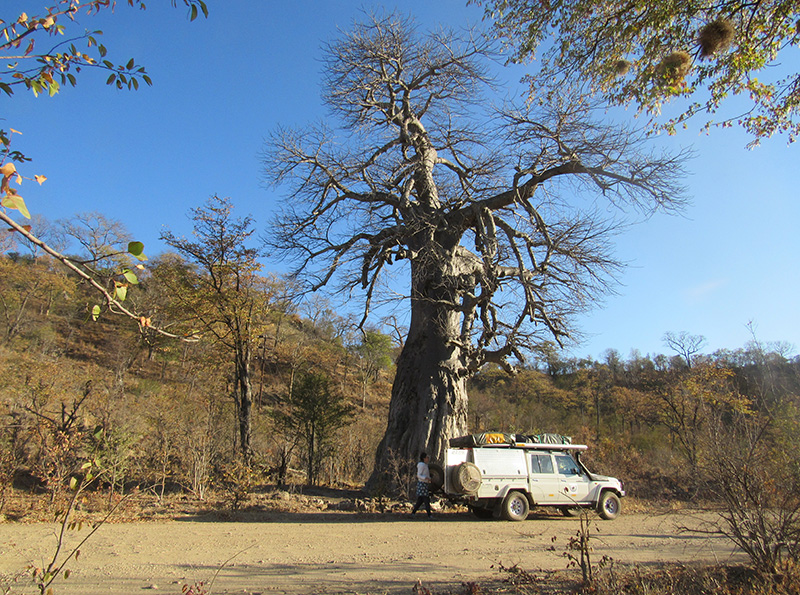Police state
We stopped at Hwange Town to restock at OK Bazaars. We drove around the town and saw some abandoned neighbourhoods, pretty houses shuttered up and broken down. At first we were nervous to shop on the busy main street, as we were so conspicuous.
Then, with a kind of morbid fascination we noticed about 20 police in the central area of the street, three of whom had full riot gear on. There did not seem to be there for any particular reason, just business as normal in a police state. No-one bothered us, smiled at us or interacted beyond what was essential. As Mandy in Panda had said, “Zimbabwe is safe. Anyone makes any trouble there and the police deal with it straightaway. Nothing tips over into violence because the police don’t let it“. The fact that Mandy spoke of this state of affairs sympathetically, compared to South Africa, is another dimension in the complicated equation of Africa.
The road to Binga
The drive from Hwange to Binga: Baobabs and red roads, perfect mud-hut villages, structures improvised from sticks and clay, like grown-up versions of Bea and Mila’s fairy houses, blue green hills and mountains, the locals walking along the roads backlit and in colourful clothes, pushing wheelbarrows or carrying water on their heads. The brutal fact is though that this is one of the very poorest areas in Zimbabwe. We realised these people must have been some of the 60,000 Batonga people relocated by the building of Kariba Dam in the late 1950’s. From subsistence village life by the abundant Zambezi River to being plonked in the middle of nowhere. No wonder Nyaminyami the God of the River is angry.
So we feel totally weird driving along in our huge loaded vehicle (how I hate the word vehicle). Immune and disembodied from our surroundings (“safe”) and yet feeling such a strong connection and even love for where we are on the planet. It’s hard to understand our own feelings. Timeless, hopeless, simple, guilty, angry, beautiful, nostalgic, patronising, perfect and terrible.

Leave a reply